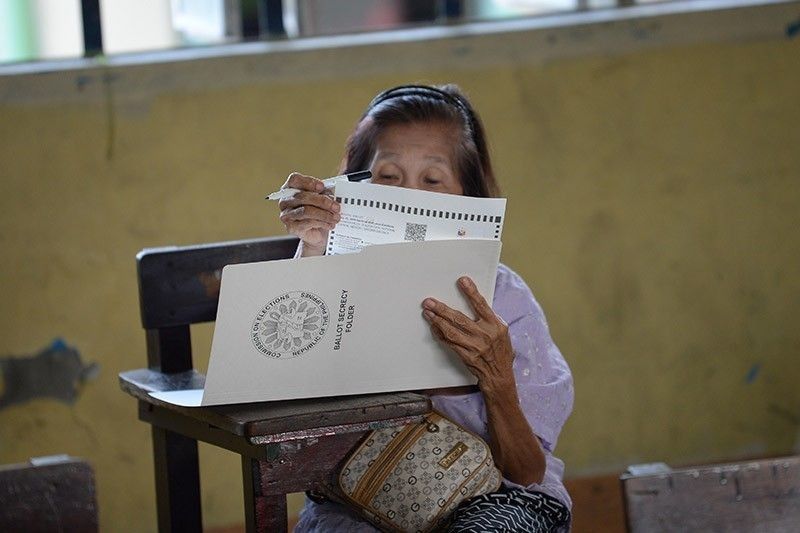‘9 million voters skipped party-list section of ballot’

MANILA, Philippines — At least nine million constituents of party-list groups failed to vote in the recent mid-term congressional-local elections, Rep. Alfredo Garbin Jr. of Ako Bicol said yesterday.
“On May 13, the total number of votes cast for 134 party-list groups was 27 million. In the 2016 elections, it was 36 million for almost the same number of organizations. The difference is nine million disenfranchised voters. That is a big loss,” he said.
He cited the case of his own group, whose bailiwick is the Bicol region.
“In 2016, Ako Bicol received 1.7 million votes equivalent to three seats in the House of Representatives. In this year’s elections, we were credited with almost 700,000 votes fewer. As a result, Ako Bicol’s representation was reduced from three seats to two,” he said.
Garbin said in Bicol, Ako Bicol received 1.1 million votes in 2016 and 700,000 on May 13, or a loss of 400,000 votes.
“Why would we lose votes in our bailiwick?” he asked.
Another party-list lawmaker, Orestes Salon of Agri, said his organization got more than 600,000 votes in 2016, entitling it to two House seats.
“This year, our votes went down drastically to 133,000, not even enough for one seat. We lost even in areas where we are strong. That is impossible,” he said.
Garbin and Salon attributed what they described as “a massive loss of party-list votes” to the decision of the Commission on Elections (Comelec) to place the list of 134 participating groups aspiring to represent sectors at the back of the official ballot.
They said people who went to polling precincts on May 13 did not notice or were not told of the listing after they voted for senatorial and local candidates whose names were listed in the front portion of the ballot.
“Voters went home without voting for a party-list group,” Garbin said.
He said in the 2010, 2013 and 2016 elections, party-list participants were listed with senatorial candidates in the front part of the ballot.
Garbin could not explain why returning party-list participant ACT-CIS (Anti-Crime and Terrorism Community Involvement and Support) topped the party-list race and won three seats, while newcomers Marino, Ang Probinsyano and Probinsyano Ako won two seats each.
“I really cannot explain that. We are still puzzled by their performance,” he said.
ACT-CIS is associated with the Tulfo media clan. One of its representatives is the wife of one of the Tulfo brothers. It is not clear how they inherited the group, which previously belonged to retired police and military personnel and whose previous representative was ex-police officer Samuel Pagdilao.
Congressmen have asked the Comelec to justify their decision to list party-list groups at the back of the ballot.
Comelec officials have been asked to bring samples of ballots used in elections since 2010 to a hearing on Tuesday.
Lawmakers have also complained about numerous glitches in the automated system of balloting.
President Duterte has asked the Comelec to terminate its engagement with its automation service provider Smartmatic and to look for another vote-counting scheme that is fraud-free.
Meanwhile, poll watchdog Kontra Daya yesterday described the results of the party-list race as very disappointing, saying that majority of the probable representatives come from groups which are bogus in orientation.
Kontra Daya lead convenor Danilo Arao noted the results are not surprising but still very disappointing, as 45 of the 61 nominees of winning party-list groups who may sit at the House of Representatives do not really represent the marginalized sectors they supposedly represent.
“From our assessment, the party-list elections have been severely compromised by the rich and the powerful,” he told The STAR.
Arao added the representatives come from groups that either have links with political dynasties or incumbent officials, have special business interests or questionable advocacies.
He cited the Duterte Youth party-list group which, he alleged, has taken the bastardization of the party-list system to another level because of the element of brazeness of former National Youth Commission chairman Ronald Cardema to become its first nominee.
Duterte Youth was among 62 “bogus” groups flagged by Kontra Daya prior to election day. There were 134 groups that participated in the elections.
According to Arao, the situation can still be remedied by the law on party-list system to make sure that its nominees will really be coming from the sectors that they seek to represent.
He also cited the need for the Supreme Court (SC) to revisit its 2013 decision in the Atong Paglaum versus Comelec case.
Arao said this SC decision has become the legal basis for “bogus” party-list groups to run even if they do not really represent the marginalized sector they are suppose to serve. – With Sheila Crisostomo
- Latest
- Trending
































